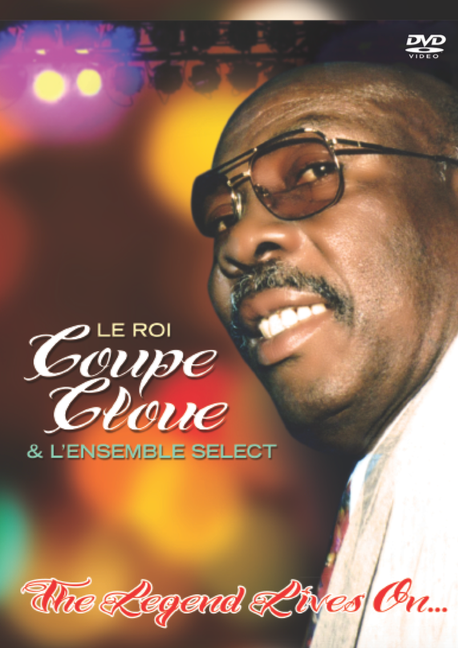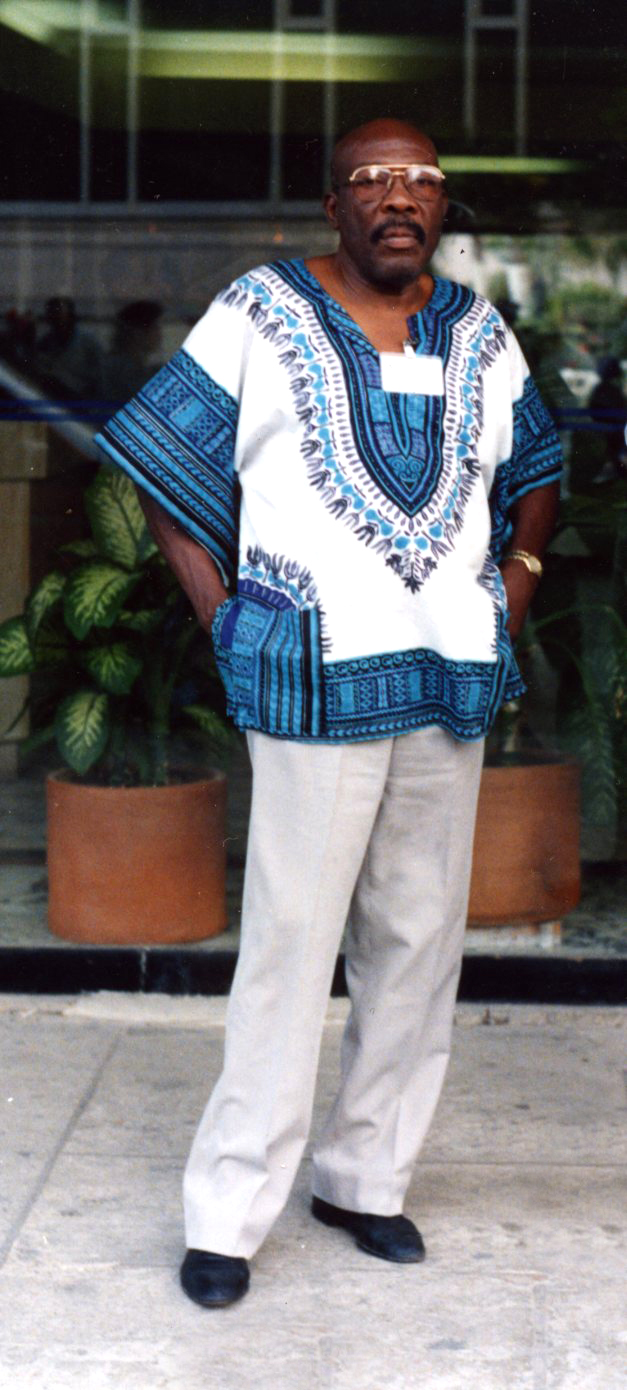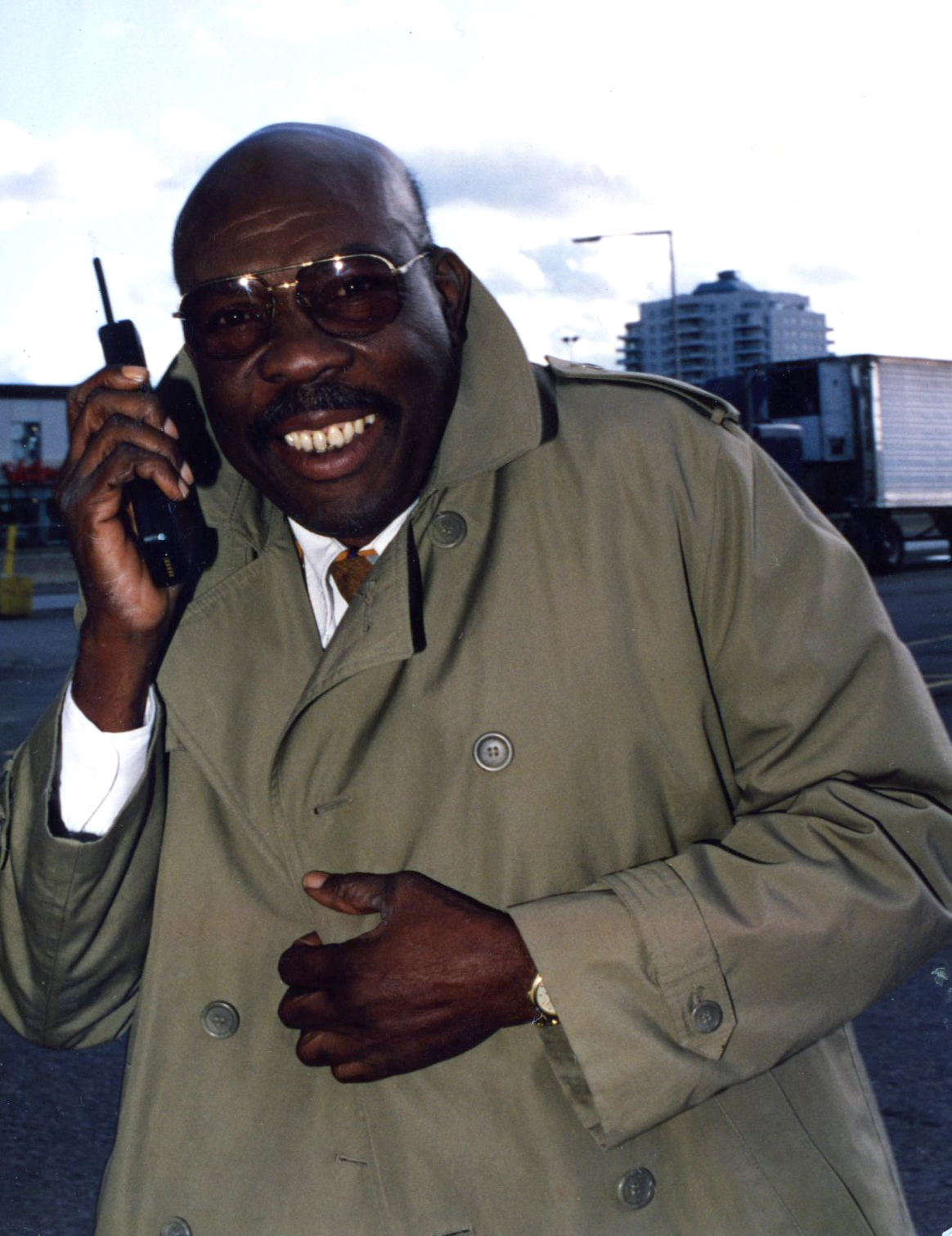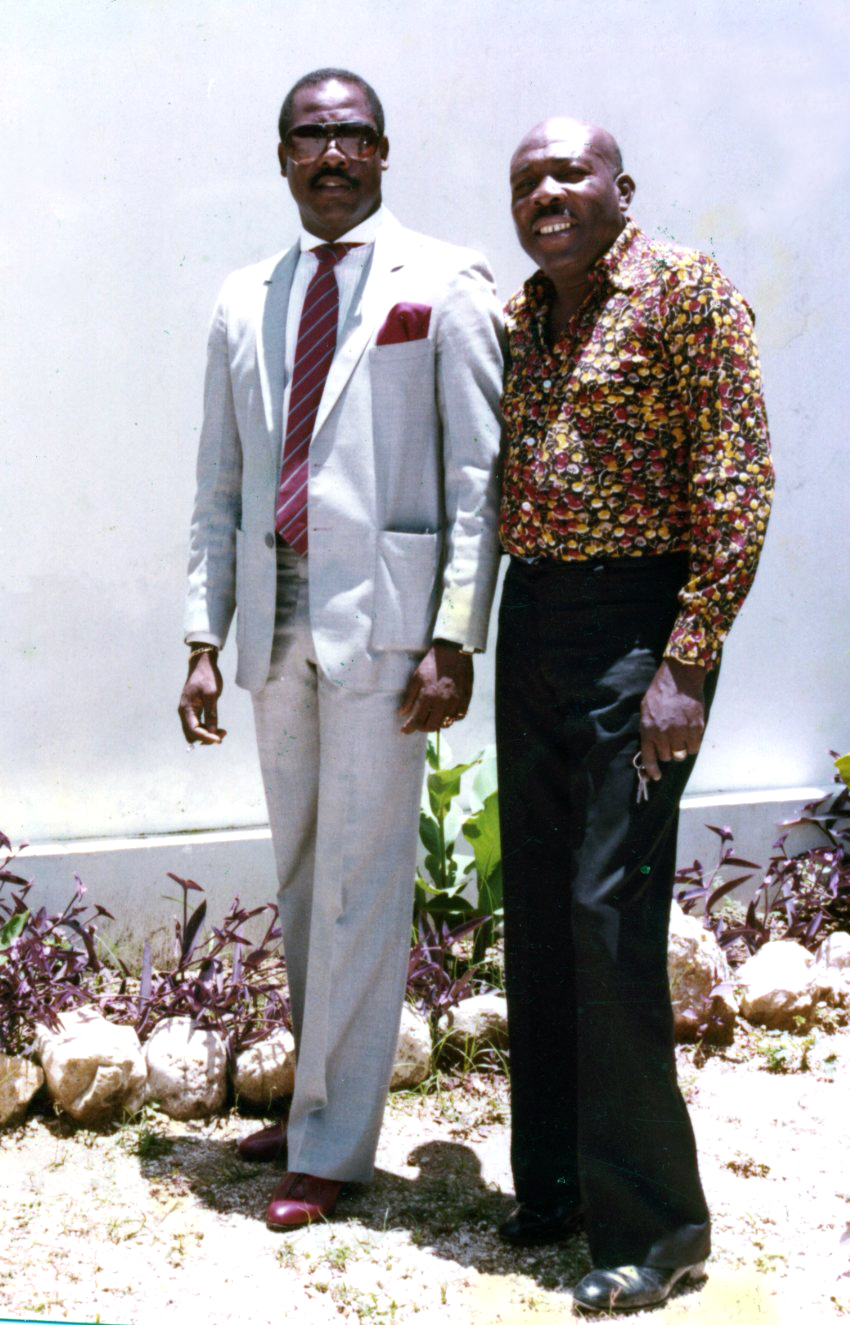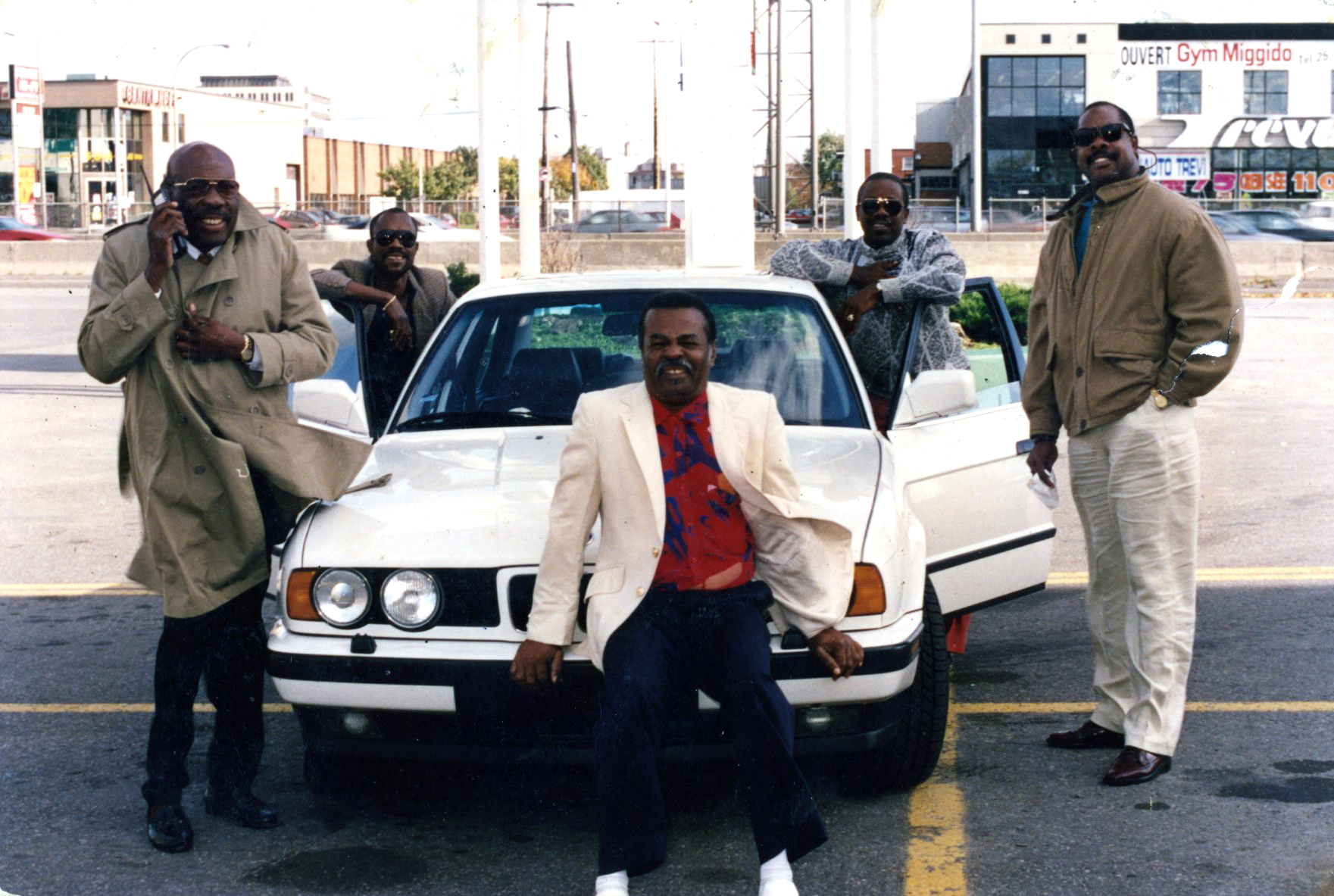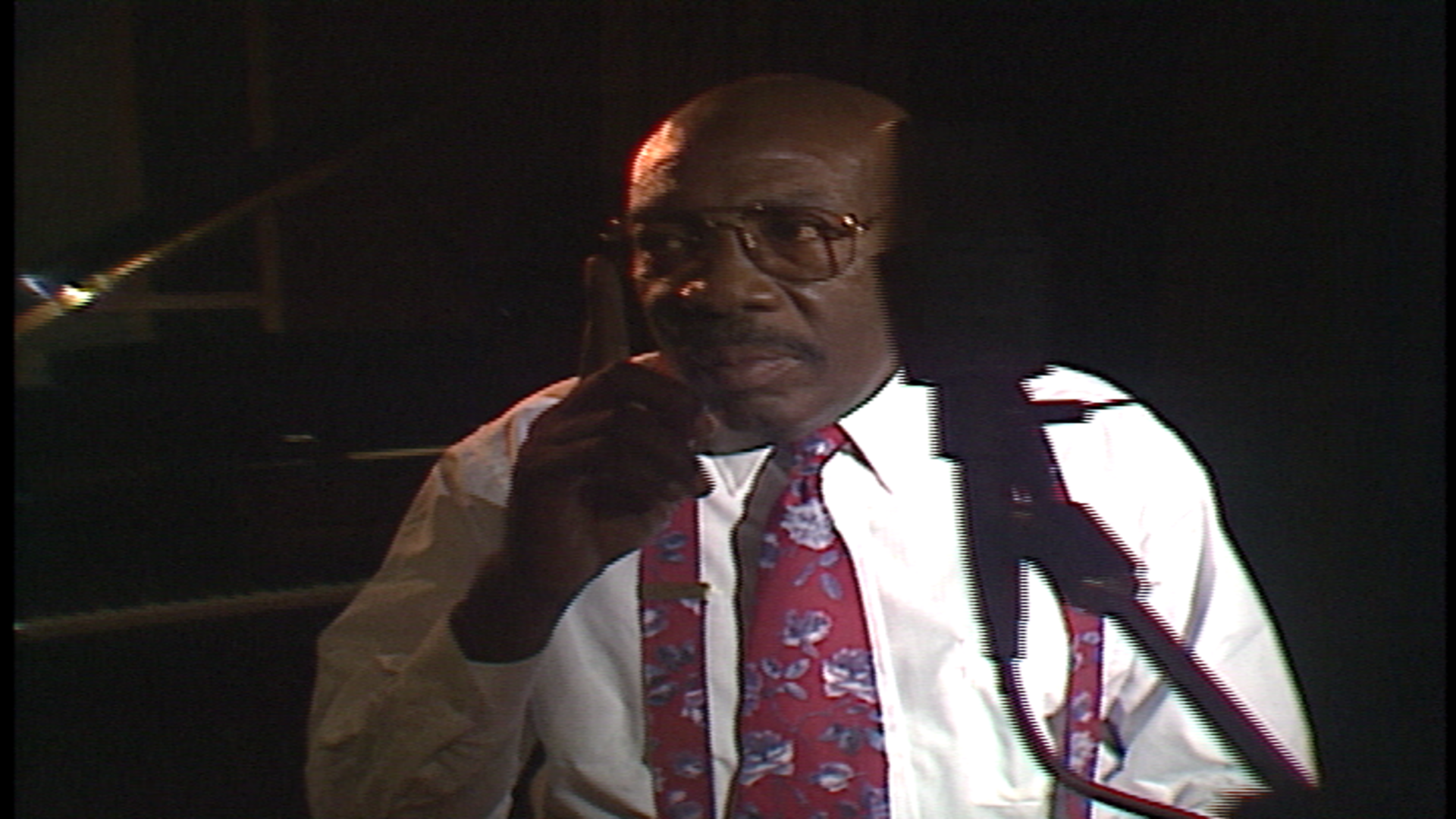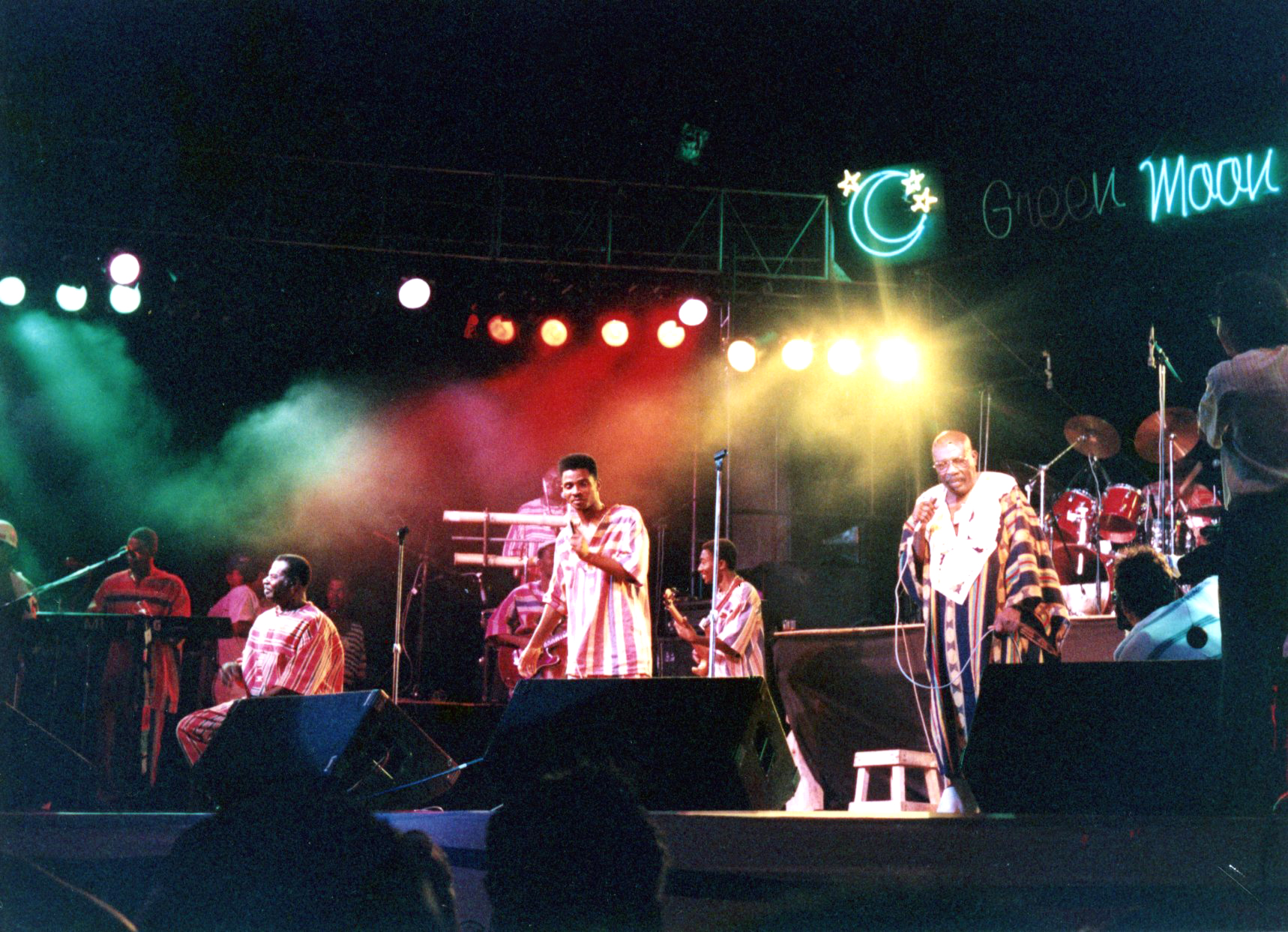Coupe Cloue
As he became a teenager, Jean Gesner Henri moved to Bel Air an old neighborhood of Port Au Prince. He started to play soccer with the club “Estad Haitien” and soon after, he joined the soccer club Hatuey Bacardi. Then at the age of twenty five, he had his eyes set on playing in tournaments organized by the Haitian Soccer Federation. His dreams became reality when together with Michel Blain, Edner Bataille and Marc Elie, he founded the soccer team “Aigle Noir Athletic Club” who made him one of their starter. On the soccer field, he was hard to compete against and most of all, he developed a style that impressed not only his teammates, but also everyone who had the chance to watch him play. Jean Gesner Henri had the ability to cut (Coupe) the velocity of the speedy ball and reduce it to a full stop, and nail it (Cloue) with a super kick right back to the other side. Each time he made this soccer stunt he used his cabinetry jargon Coupe Cloue to describe it. Soon his teammates and other players started to call him Coupe Cloue. It’s also during that time that he started to sing and play the guitar, usually before important games and during team curfew.
Despite his sport activities, the soccer star Coupe Cloue moved on to playing music but this time as a guitarist jamming and entertaining his friends and local businessman with some members of the band Trio Crystal composed of Georges Celestin, Rene Delva and Andre Cerant. Briefly, during the same period, Jean Gesner Henri joined the military where he spent few times.
By 1956, Jean Gesner Henri devoted himself completely to music. Upon his initiative, the group “Trio Select” was created on September 6, 1957 playing the style of Canjo, the father of the Twoubadou style of music in Haiti. Using his enthusiasm and connections, he started to promote the group at certain radio stations in Port Au Prince notably Radio Caraibes, Radio Quisqueya, Radio MBC, Radio Cacique and Radio Haiti. The Trio surprised the crowd of the famous venue Theatre De Verdure at their first live performance as they were the opening act for Haiti’s most popular band of the 1950s, Jazz Des Jeunes. After the show, they became the talk of the town. All the top radio stations and others were after the artist for interviews and recordings.
In 1958, Trio Select released their first album with the help of producer Marc Duverger. One can not talk of the beginning of Trio Select without talking about the contribution and play of guitarist Bellerive Decelian who spent more than twenty years in the group before leaving us in the late 80’s. He was considered one of the best with a unique technique while adapting to the style of the time. Up to then, the guitar as an instrument has not integrated the main stream in all the major bands of the time. He and Trio Select were among the first to use the guitar as a lead instrument preceding by a few years the new wave of groups in the early 60s known as Mini Jazz.
The Trio Select soon got momentum in the early 1960s as it got a regular Friday night show at Cric Crac Cine as well as many gigs at the Club Bamboche both venues located in the neighborhood of Carrefour. That was the start.
Afterwards, Trio Select started playing at the Citadelle Garden owned by the Joseph brothers. Then, they went on to play at Week End Paradis where they started to get a huge following.
By the late 1960s, the famous singer Luc Raphael Benito from the group L’Etoile Du Soir joined the group. It’s also around the same time that songs like “Juge”, “Plen Kay”, “Chada”, “Kilibwa”, “Kribiche”, “Kousi Kousa”, “Deux Pigeons”, “Saint Antoine”, “Bambou” and “Socis” among others started to hit the air waves. One of his first hit “Juge” was censored by the government. The song was then remake cleverly by Coupe Cloue under the name of “Ti Sourit”. The voice of Coupe Cloue became one of the most recognizable of the airwaves even with the evolution of the Mini Jazz movement. As Trio Select was getting more shows playing with other popular bands with heavier sound, Coupe decided to introduce more sophisticated and amplified instruments in his group.
In 1973, at the club L’anolis Vert located in Thomassin, Trio Select became “L’Ensemble Select”. This decision was one of the best by the entrepreneur as the introduction of talented musician like Prosper Saint Louis on bass, Jean Rene Petion on Bongo, and Colbert Desir on congas contributed greatly to his early success.
In March 1974, upon his return from a tour in the U.S., the group added other talented musicians such as singer Edner Salomon “Ti Blanc”, guitarist Rigal Jean Baptiste from the group Super Choucoune 70, guitarist Moise Jean, conga player Serge Bernard “Ti Aigle” and drummer Ernst Louis “Ti Nes” who took the band to another level. The new group revamped songs like “Saint Antoine”, “Yeye”, and “Chanm Gason” by adding some jokes to them like Gerard Dupervil did previously in the song “Cout Lang” of Jazz Des Jeunes. In 1974, the carnival song “Men Rat La” was an instant success on the float of the flour company “Minoterie”.
By using that template, Coupe Cloue, with his unique style of telling jokes accompanied by his new found rhythm based on the work of the bongos and congas combination, quickly got the attention of the public. By the mid 1970, Ensemble Select of Coupe Cloue became the band of choice of people visiting the country from abroad. They got a contract to perform on a regular basis at “Le Lambi Nightclub”, which is one of the most popular venues in the south side of the nation capital Port-Au- Prince.
At the end of 1976 Assade Francoeur, one of the top singers and composers from the group Super 9, joined the band. His enormous contribution was going to take the band to his apogee with super hit songs like “Myan Myan” and “Fanm Kolokinte”. The voice of Assade Francoeur on the airwaves as the new lead singer of the band, playing next to Coupe Cloue created a new wave of young fans following the band. While most people knew of Coupe Cloue as a controversial singer who often used harsh words to describe the reality of the country, like in the song “Shada”, and sometimes hidden profanity (Like in his songs “Map Di” and “Juge”), or not quite hidden like in the song “Sociss”, Assade’s contribution, 44 songs in total, to the band was quite different as he came up with more ballades, like the song “Marie Jocelyne”, which he wrote for his wife. Bass player Daniel Dalce “Ti Bass” also contributed significantly to the band’s repertoire and originality.
The news of the band attracting so many followers and the selling of many albums outside of Haiti got the attention of show producers around the globe. By the late 70’s the band was already playing in many countries outside of Haiti. By the early 1980s the band went to several cities in North America, many countries in the Caribbean and in France. In December 1979, for the first time, the band went as far as Africa. They got the best welcome in Ivory Coast where Coupe Cloue was received with honor like world dignitaries.
While many bands were influenced by the sound of the new wave of French Caribbean bands by adding a live horn section to their line up, Coupe Cloue kept his originality and even was the champion of the 1980s Haiti’s Carnival Parade with the song “Roi Coupe” (King Coupe), a title he kept for the rest of his life.
By the end of the 1980s Coupe Cloue had so many hit songs in his repertoire that it would have been hard for any radio announcer to do a show in which they would be able to satisfy all the requests of the listeners as songs like “Fanm Kolokinte”, “Madan Marcel”, “Sa Depan”, “Tu Peux Mettre”, “Azoukenken”, “A Ki Kle” and many others, were super hits that were the choices of so many people in the Haitian music world.
In the early 1990s, despite the changes happening in the Haitian music society, and the introduction of the digital bands getting most of the contracts, Coupe Cloue still kept his originality and was still one of the busiest bands in the market. However, by the mid 1990s the death of some of his musicians and the departure of others who decided to leave the country to reside else where often in the U.S. took a toll on the king. The band was mostly performing his former hits and was not coming up with new hits except for the song “Donki” taken from the album “Sa Ki Pou Ou” released in 1993 under the label Melodie Makers. Under the guidance of Jeff Wainwright and Ernst Louis, this album was recorded partly using the new technology of computer sequencing. “Donki” was arranged by Dadou Pasquet & Laurent Ciceron.
The same year they filmed the Legend only video “Donki” in which some people were able to see images of an aging Coupe Cloue.
In the years that followed, he was even absent at some of the live performances and had also stopped performing outside of the country as he became ill and too old for the night performances in the demanding Haitian music industry. In 1997 he was invited to the Brooklyn Academy of Music in New York where the producer of Haiti Focus presented him with the Lifetime Achievement Award. Also in Haiti, he was later honored by his fellow musicians, the media and the public in general at a ceremony which was televised nationwide. Coupe Cloue one of the most popular Haitian artists of all the time died on January 29, 1998 leaving behind many memories, many hit songs and a style of music called the Kompa Manba that is even now being played by many bands around the globe.
Coupe Cloue is today the best known artist from Haiti. From humble beginnings, with his talent and creativity, Coupe Cloue applied himself to spreading his unique style of music “Kompa Mamba” to many parts of the world. It is no surprise that Coupe Cloue now enjoys an icon-like status. Coupe Cloue never wrote a bad song. He was a musical prophet. Forty Years in the Music industry has taken him all over the world.
Apres avoir laisse l’ecole Centrale des Arts et Metiers, il s’installa au Bel-Air, l’un des ancients quartiers de Port-Au-Prince.
Il commenca a jouer au football avec l’equipe “Estade Haitien” et puis vers l’age de vingt-cinq ans, avec le club Hatuey Bacardi. Quand il s’agit pour le Bel-Air d’avoir sa prope equipe devant participer aux competitions officielles organisees par la Federation Haitienne de Football, Jean Gesner Henri, en compagnie d’autres amis, notamment Michel Blain, Edner Bataille et Marc Elie, fonda l’Aigle Noir Athletic Club, l’une des meilleures equipes du pays. Jean Gesner Henri, au physique impressionnant, etait un joueur intrepide. Tres dur sur l’homme, il avait une renomme qui faisait trembler les adversaries les plus coriaces. Sa devise etait, “le ballon passe, mais l’homme ne passe pas”. C’est lors de son passage dans cette equipe qu’il herita de ce sobriquet célèbre de “Coupe Cloue”, pour lequel il doit une fiere chandelle a l’inspiration du public. Ce surnom a nettement surclasse son appellation legale. C’est aussi au cours de son passage dans cette equipe qu’il apprit a chanter et a jouer a la guitar, a la veille des rencontres importantes et au cours des periodes de concentration.
Malgre ses activites sportives, Jean Gesner Henri pretait aussi de temps a autre ses services au Trio Crystal compose d’Andre Serant, Georges Celestin et Rene Delva. Ce trio amusait les gens du quartier soit par des serenades ou par leur presence dans les salons. Au cours de cette meme periode et après avoir racroche les crampons, Jean Gesner Henri s’inscrivit dans les services militaries ou il passa peu de temps.
C’est en 1956, Jean Gesner Henri, homme jovial, s’adonna completement a la musique. C’est d’ailleurs sur ces conseils que son groupe fut baptise “Trio Select” le 6 septembre 1957. Au debut, le groupe jouait un peu le style Canjo precurseur du genre Troubadour dans la musique haitienne. Avec le dynamisme qu’on lui connait et pour rendre le trio plus populaire, il entrepit des demarches pour que le groupe se produit dans diverses stations de radio de la capitale, notamment Radio Caraibes, Radio Quisqueya, la MBC, Radio Cacique et Radio Haiti. La premiere prestation du groupe Trio Select eut lieu au cours de cette meme annee au Theatre de Verdure en compagnie du Jazz des Jeunes.
En 1958, le Trio Select sortit leur premier album avec l’aide du producteur Marc Duverger. Il ne serait aussi pas juste de parler du debut du Trio Select sans mentionner le nom du guitariste Bellerive Decelian, qui avant de passer de vie a trepas vers la fin des annees 80, a passé plus de vingt ans de service actif au sein du groupe. Il etait considere comme l’un des meilleurs guitaristes Haitiens, possedant une rare maitrise de son instrument tout en s’adaptant au style de l’epoque. La guitar instrument d’harmonie et regulatrice du rythme ne disait absolument rien aux familles Haitiennes d’autrefois, qui la placait sans reverse au rang d’objets superflus, detonnant avec les moeurs donc a proscrire en toute rigeur. Coupe Cloue est celui qui valorisa la guitar dans la musique haitienne au debut des annnes 60, et plus tard, les autres orchestres (Mini Jazz) deciderent d’adopter comme lui l’instrument et de l’integrer dans leur formation de base.
Dans les annees 60, apres cette prise de contact avec le public, le Trio Select a connu un enorme success aux soirees organisees a l’etage du Cine Cric Crac a Carrefour. Le trio s’entendit ensuite avec Marcel Fils pour animer les soirees du week-end a Ti-Zoute au Club Bamboche a Carrefour. C’etait le depart. Par la suite, le trio se deplaca vers Mariani au Citadelle Garden des frères Joseph ou il passa peu de temps. Ensuite, aussi a Carrefour le week-end Paradis servit de base au Trio Select d’ou il commenca a assoir sa reputation.
A la fin des annees 60, le fameux chanteur Luc Raphael Benito venu de l’ Etoile Du Soir renforcera aussi les rangs de l’orchestre. C’est aussi a cette meme époque que furent lances certaines chansons telles que: “Juge”, “Plen Kay”, “Chada”, “Kilibwa”, “Kribibiche”, “Kousi Kousa”, “Deux Pigeons”, “Saint Antoine”, “Bambou” et “Sociss ”. L’un de ses premiers tubes “Juge”, une chanson d’epoque et un grand success, fut censurer par les autorites d’alors. Elle fut tres vite reprise avec astuce par Gesner Henri sous l’appellation de “Ti Sourit”.
En 1973, c’est a l’Anoli Vert a Thomasssin que le Trio devint “L’Ensemble select”. De cause a effect, d’autres instruments ont ete ajoutes, notamment la basse jouee par Prosper St-Louis, le Bongo par Rene Petion, l’un des fers de lance de l’ensemble, le tambour par Colbert Desir.
En Mars 1974, a son retour de son premier voyage aux Etats Unis, l’Ensemble engagea d’autres musiciens: Edner Salomon dit “Ti Blanc” comme chanteur, Rigal Jean Baptiste transfuge du Super Choucoune 70 a la guitar d’accompagnement, Moise Jean a la deuxieme guitar d’ accompagnement, Serge Bernard dit “Ti Aigle” au tambour, Ernst Louis dit “Ti Nes” a la batterie. Cette nouvelle formation remania certaines chansons comme « Saint Antoine », « Yeye » and « Chanm Gason » en ajoutant des preches et des blagues a la maniere de Gerard Dupervil dans la chanson « Cout Lang » du Jazz Des Jeunes. Leur meringue carnavalesque de l’epoque “Min rat La” connut un success immense sur le char de la Minoterie.
Dans la vie rien n’est statique, et la musique n’echappe pas a cette regle. Les membres de cette formation n’ont pas oublie que le progres et l’inactivite ne font pas bon ménage. En 1975, époque ou tous les groupes musicaux Haitiens, et meme ceux de l’etranger animaient les nuits de Port-Au-prince au Lambi Night Club, la vie nocturne locale ne souffrait de rien. C’est ainsi que l’Ensemble Select, pour agrementer davantage l’ambiance des noctambules, se produisit regulierement dans cette boite de nuit. Il alla de success en triomphe, ce qui fit decouvir le charme, la beaute, et la richesse de la culture populaire haitienne a travers une musique simple, mais originale.
A la fin de 1976, Assad Fancoeur compositeur tres adroit, sortit des rangs du Super 9, ne manqua pas de se faire apprecier par les fans de l’Ensemble Select. A ce moment, il fallait un souffle nouveau, de l’epanouissement musical pour une fusion harmonieuse des adeptes jeunes et vieux. On se rappelle des chansons qui firent la une de l’actualite “Myan Myan”, “Fan’m Kolokinte”, “Marie Jocelyne”, etc”. Par ses nombreuses compositions, 44 au total, Assad Francoeur pourrait a lui seul etablir le repertoire de l’ensemble, totalisant plus de dix albums. Soulignons aussi que parmi ces compositions, les Meringues Carnavalesques ont particulierement et largement contribuees a populariser l’Ensemble Select. Autant que lui, nous devons rappeller que le bassiste Daniel Dalce, communement appelle “Ti Bass” a aussi enormement contribute a l’originalite de L’Ensemble Select.
Les soirees se multiplierent au Lambi, ce qui lui donna un remarquable essort, le propulsant en Afrique, plus precisement en Cote d’Ivoire au cours du mois de Decembre 1979. C’est dans ce pays que Jean Gesner Henri fut proclame Roi et intronise, comblant de satisfaction des milliers d’Africains. Depuis lors, c’est comme un pelerinage; chaque annee revient l’impetieuse obligation de repondre a plusieurs invitations de different pays d’Amerique, d’Europe et d’Afrique. Apres la gloire, il fallait la consecration. En 1980, Elle devint definitevement une realite pour l’Ensemble Select. Au cours des festivites du Mardi Gras, il fut nommer Roi du Carnaval avec une meringue qui porta le nom de Roi Coupe.
Parler de l’Ensemble Select dirige par Jean Gesner Henri dit Coupe, de son evolution, de ses realizations musicales et de sa production, c’est logiquement considerer la grande discipline qui y regne. Naturellement, rien d’humain n’etant parfait, certains incidents ont marque le long chemin parcouru par ce groupe musical, mais aucun de ces malheureux evenements ne pourraient constituer un danger potential, capable de mettre en peril l’existence du groupe.
Rappellons que l’Ensemble Select constitue, et ceci d’un avis unanime, un veritable ambassadeur de la musique Haitienne. Partout ou il s’est produit en diaspora, c’etait toujours le delire, le success le plus entire. Coupe Cloue etait sollicite en Amerique Du Nord (Etats Unis / Canada des 1974), en Europe et aux Antillles Francaises (Des 1978), en Affrique occidentale (1979), en Colombie (En Mai 1986 et 1987). Partout, ce fut le success le plus total. De nos jours encore, l’Ensemble Select demeure l’une des formations Haitiennes qui a ete la plus demandee, la plus reclamee a l’exterieure, et aussi un client sympathique des lignes aeriennes.
Lorsqu’un jour, la rumeur voulut faire croire que le troubadour maestro malade etait condamne a laisser au repos definitivement ses cordes vocals, les fans recurrent un coup dur. Heureusement que ce n’etait qu’une rumeur. Coupe Cloue est reapparu plus en forme que jamais pour rependre sa mission avec une nouvelle generation de musiciens qui auront ete forme pour la releve. Ils sont: Guy Montreuil aux claviers (1984), le chanteur Joel Joseph qui a beaucoup travaille a l’enrichissement du repertoire de l’Ensemble Select (1985), le percussioniste Rolls LAine “Roro” (1987), le bassiste Onel Henry (1987), le chanteur Guy Paul (1993), le guitariste Louixene Floristal “El Pozo” 1993, Jean Claude Julien aux claviers (1993) ……
En 1993, sur le label Melodie Makers, il sortit l’album “Sa Ki Pou Ou” avec le hit “Donki” qui le fut connaitre par la generation d’aujourd’hui. Sous la direction de Jeff Wainwright et d’Ernst Louis, la moitie de l’album fut enregistrer utilisant pour la premiere fois la programmation de sequences d’ordinateur. « Donki » fut arranger et composer par Dadou Pasquet et Laurent Ciceron. Au cours de la meme annee, le label produit le videoclipe du titre, restant le seul clip de sa longue carriere.
Le Roi Coupe Cloue et ses princes font courir le monde avec leur rythme et leur “Preches”. L’Afrique les a reclame et l’Europe les a proclame numero 1 au Hit Parade. C’est preuve, l’evidence meme que cette musique “Made in Haiti” ne connait point de frontiers. Apres une longue bataille avec le diabete, Jean Gesner Henri dit Coupe Cloue nous a quitte le 29 janvier 1998 a l’age de 73 ans. Le mercredi 4 fevrier 1998, des funerailles nationales ont ete chante a Port-Au-Prince en son honneur. Sa legende continue.
Il aura toujours raison, celui qui un jour eut prononcer le diction: “A bon vin…..Point d’enseigne”. S’il avait prevu qu’un ensemble musical Haitien aurait atteint une telle ascendance, il aurait peut-etre declare: “L’Ensemble Select d’Haiti….Bon vin, plus ca veillit, plus c’est merveilleux” et dans notre savoureux Creole, “Pi rouye, Pi koupe”.

